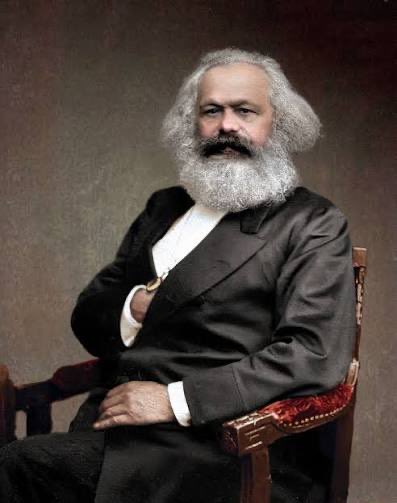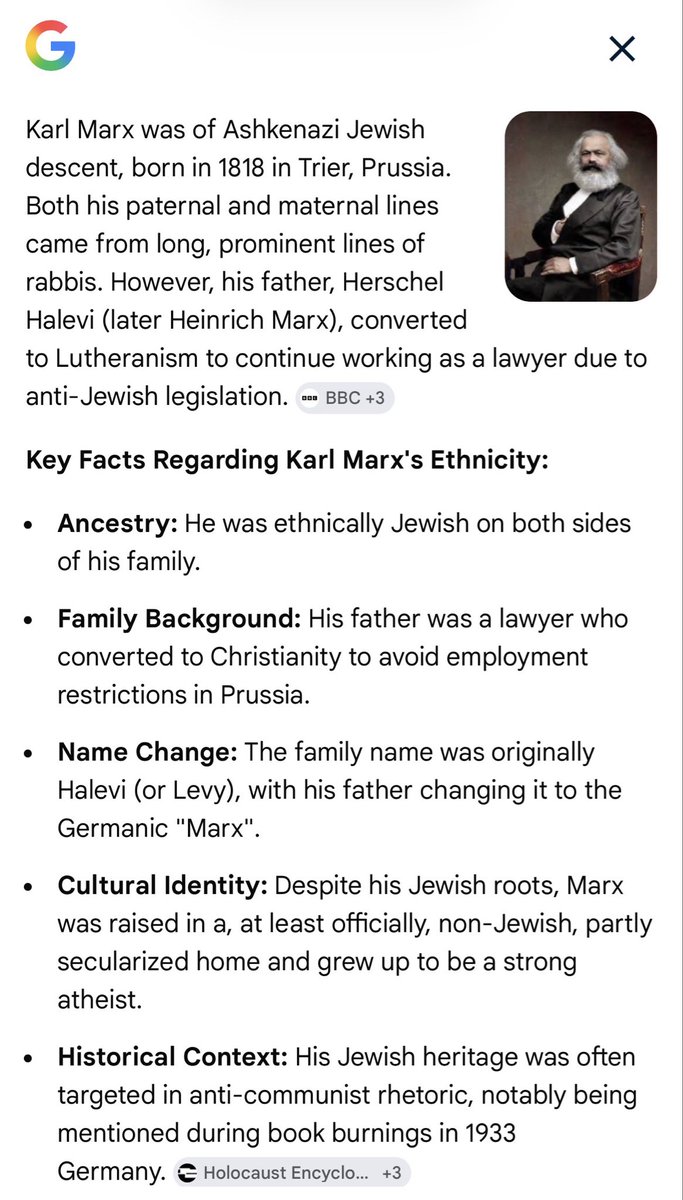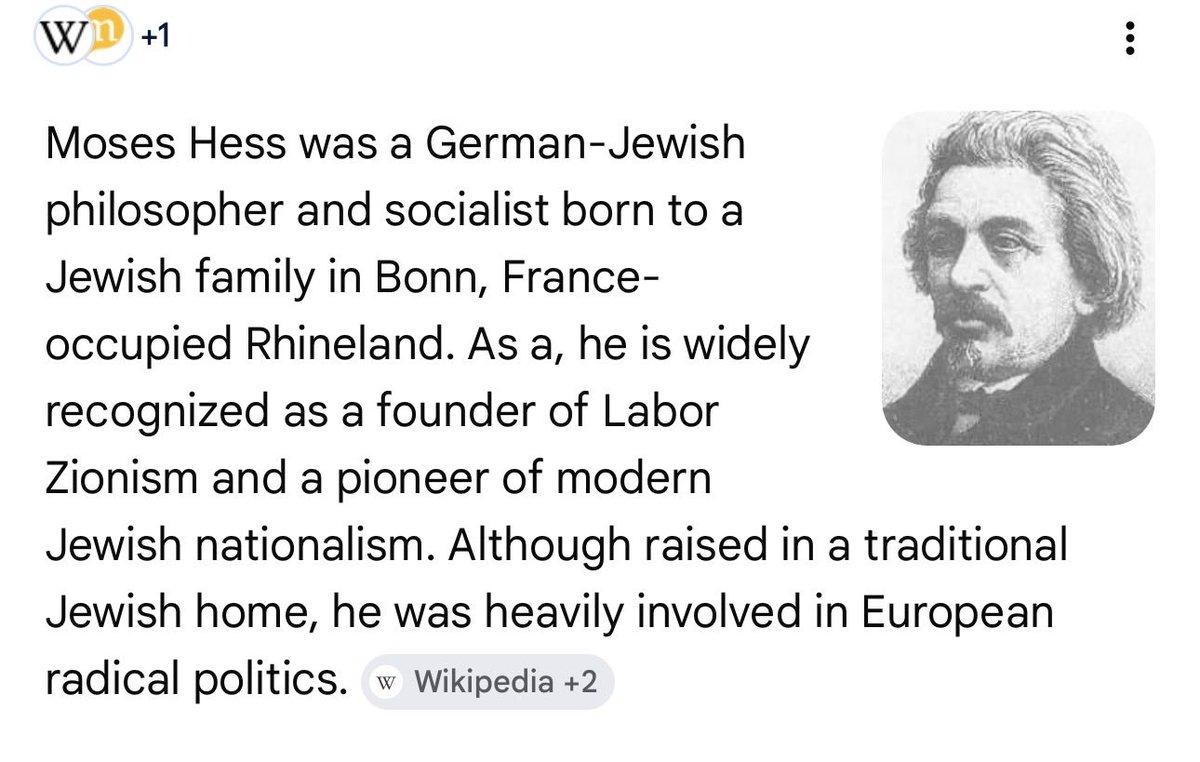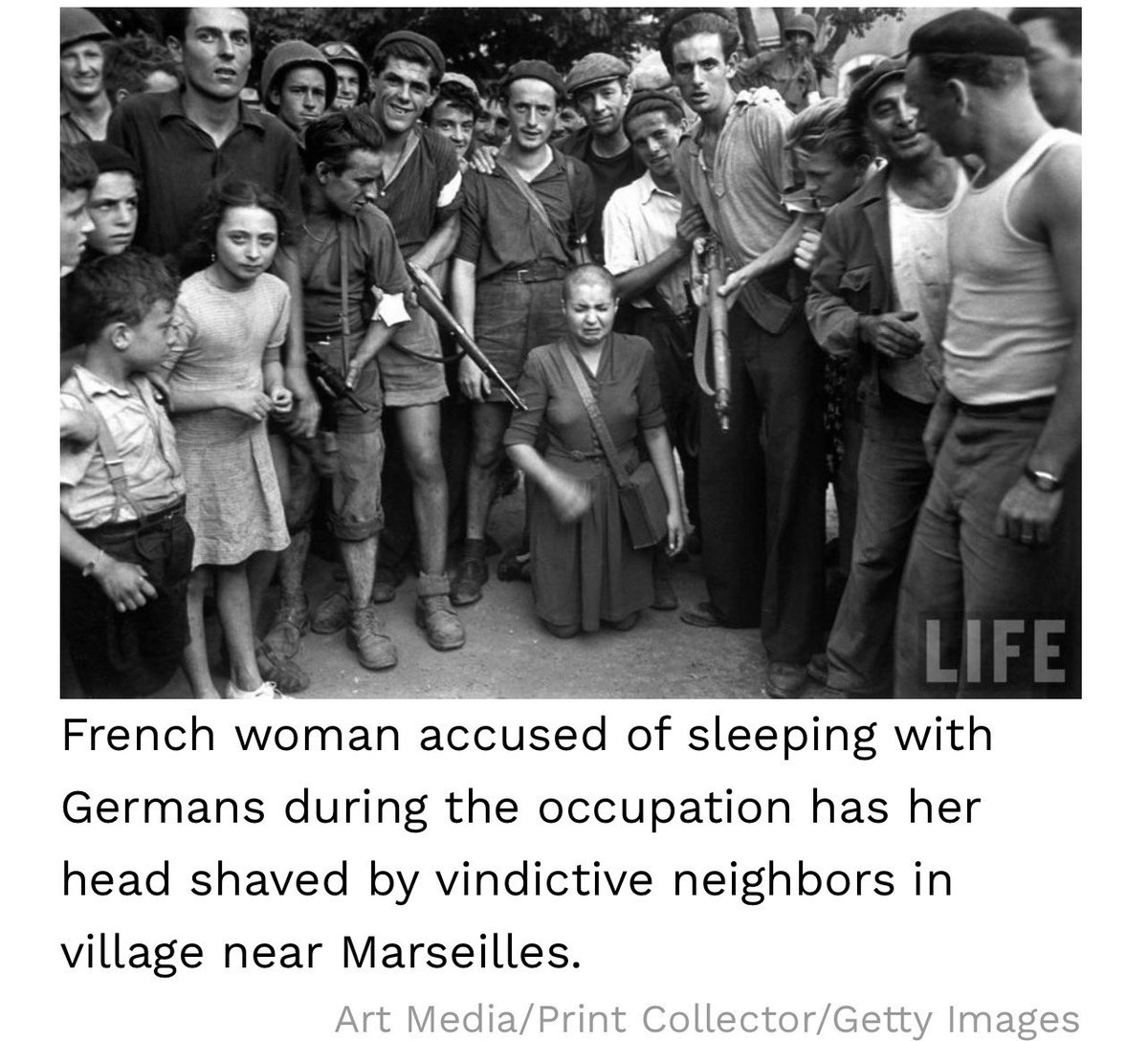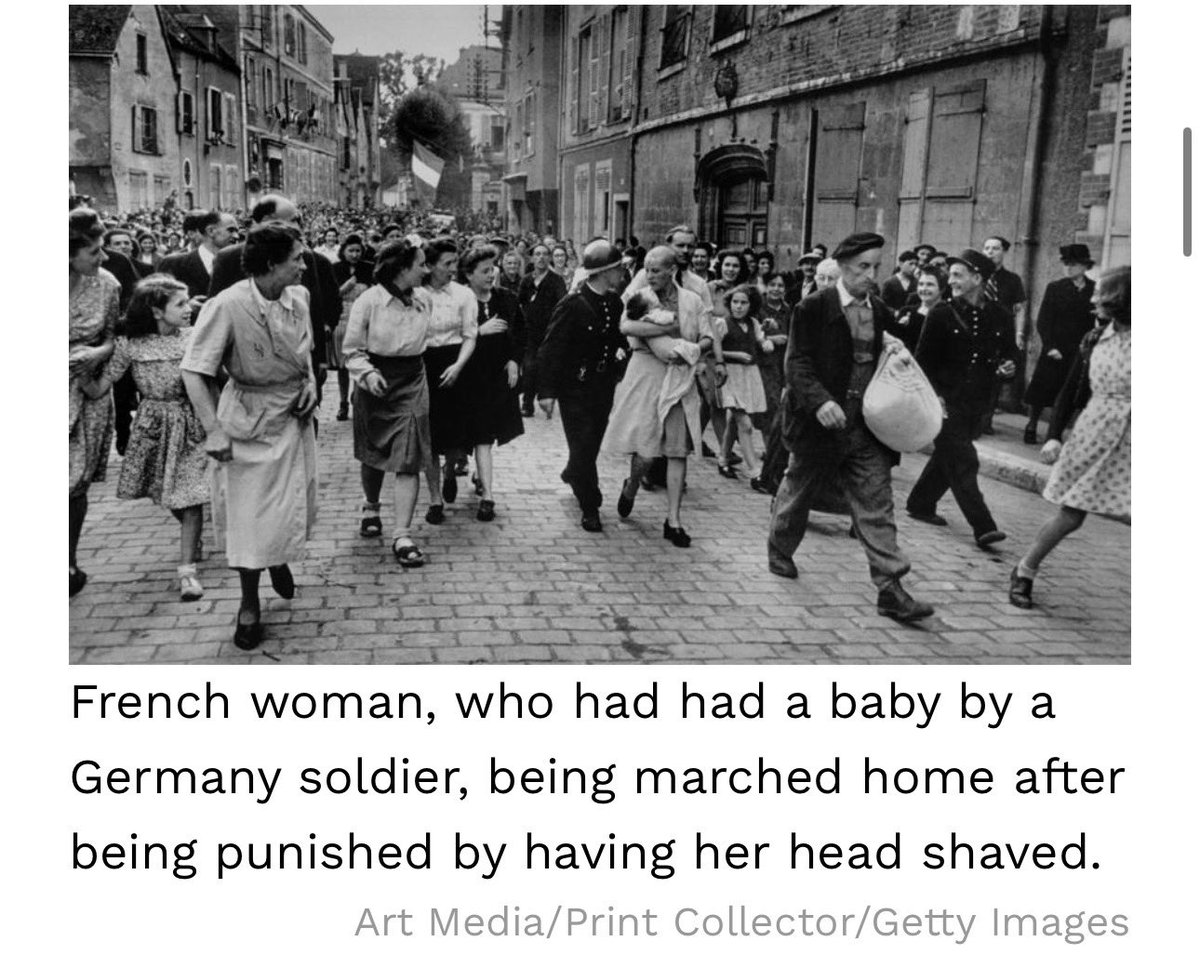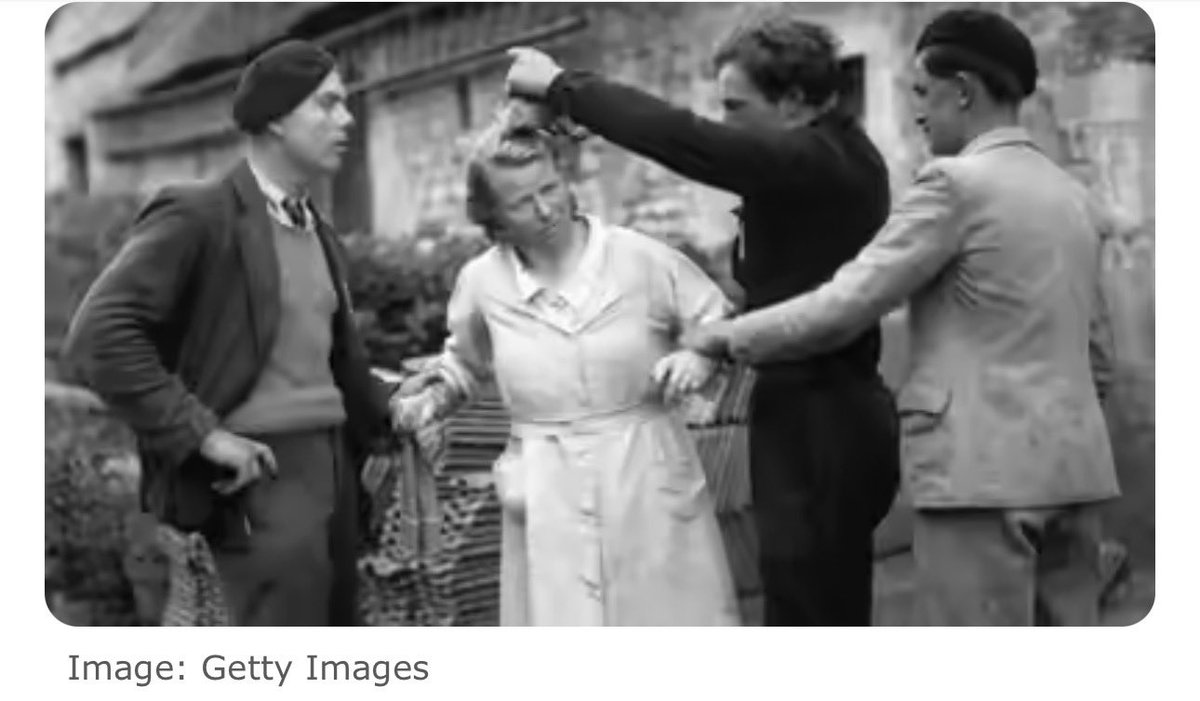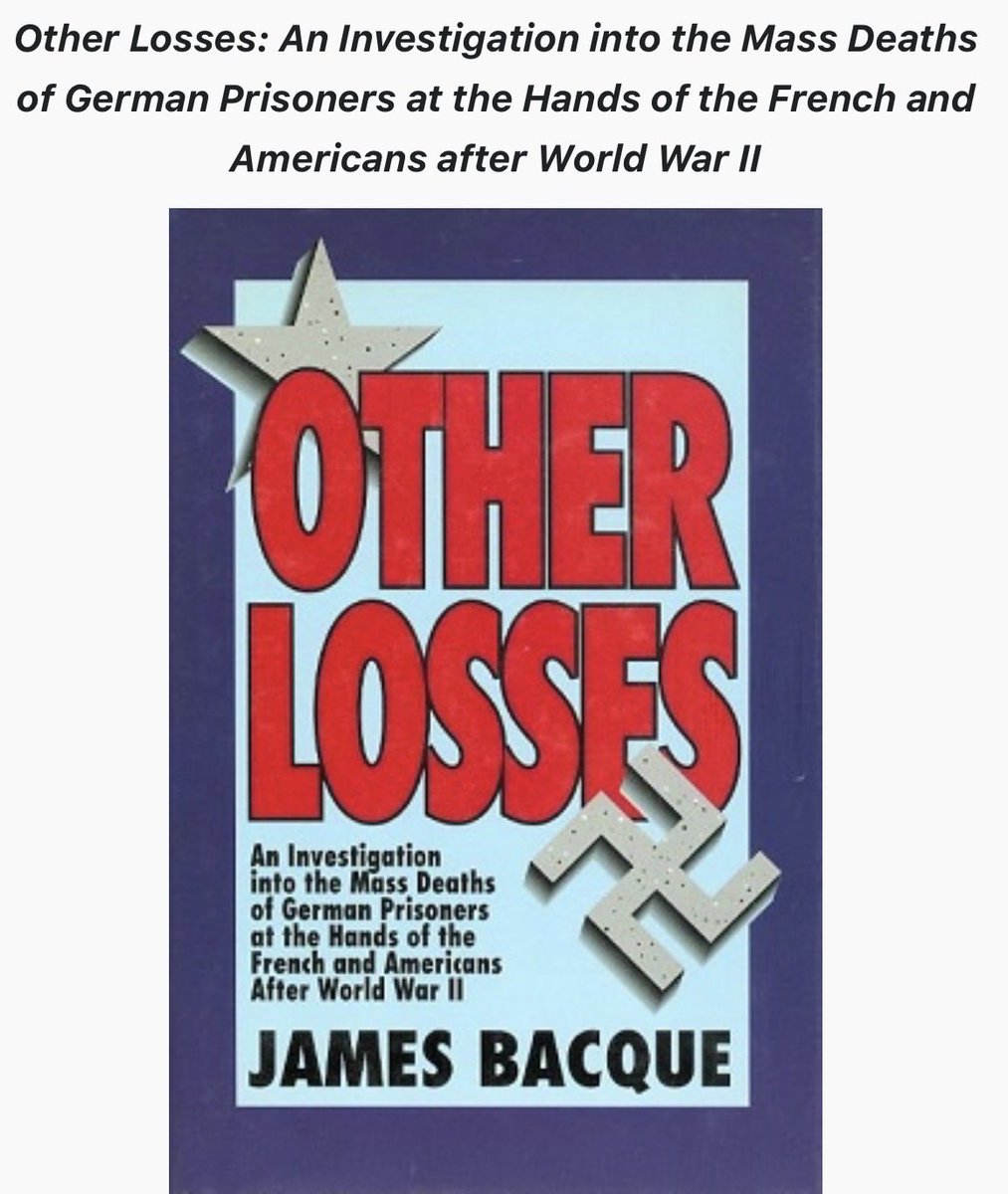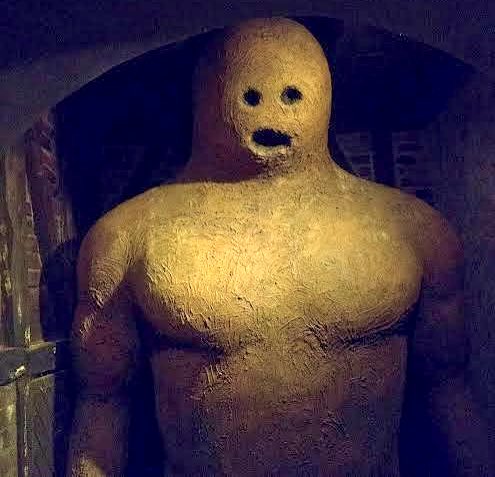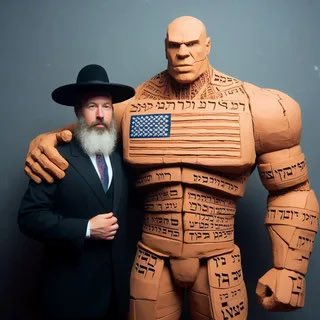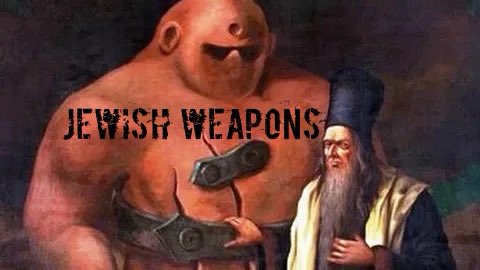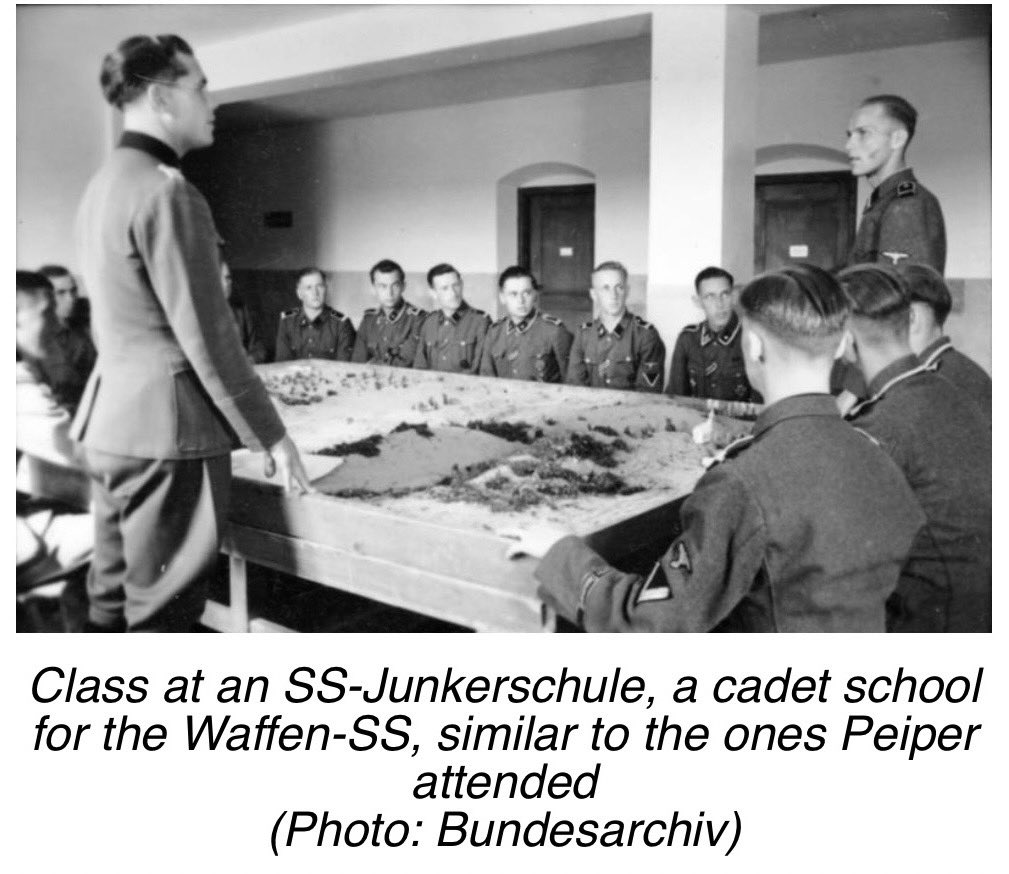🧵Thread🧵
🧵1/9
🔹Naftaly Frenkel(1883-1960)🔹
👺The ‘Demon of the Archipelago’👺
▪️"WE HAVE TO SQUEEZE EVERYTHING OUT OF A PRISONER IN THE FIRST THREE MONTHS AFTER THAT WE DON'T NEED HIM ANYMORE!" - Naftaly Frenkel
▪️Lets expose how Naftaly Frenkel who started as a common prisoner in the Stalin Gulags, became the big boss of the same Soviet Gulag slave labor camps…..
▪️For educational/historical purposes only.
🧵2 ⬇️
🧵1/9
🔹Naftaly Frenkel(1883-1960)🔹
👺The ‘Demon of the Archipelago’👺
▪️"WE HAVE TO SQUEEZE EVERYTHING OUT OF A PRISONER IN THE FIRST THREE MONTHS AFTER THAT WE DON'T NEED HIM ANYMORE!" - Naftaly Frenkel
▪️Lets expose how Naftaly Frenkel who started as a common prisoner in the Stalin Gulags, became the big boss of the same Soviet Gulag slave labor camps…..
▪️For educational/historical purposes only.
🧵2 ⬇️

🧵2/9
▪️”In 1923 together with nine other people, he was arrested by the Soviet authorities and sentenced to death for “illegally crossing borders.” But right before his execution, his sentence was unexpectedly commuted to ten years of hard labor, whereas the other prisoners with him were shot to death. The rumors say that Frenkel bargained for his life with the local commandant 🤔 . Whatever the case may be, Frenkel was not executed, but rather was sent to the Solovetsky labor camp in northwest Russia, which was one of the first forced labor camps in the USSR.”
▪️”He was sentenced to 10 years' hard labor at Solovki. The Solovetsky Islands, in the White Sea, came to be known as the "first camp of the Gulag". Solovki was primarily intended for socialist opponents of Soviet Russia's new Bolshevik regime.”
▪️”In 1923 together with nine other people, he was arrested by the Soviet authorities and sentenced to death for “illegally crossing borders.” But right before his execution, his sentence was unexpectedly commuted to ten years of hard labor, whereas the other prisoners with him were shot to death. The rumors say that Frenkel bargained for his life with the local commandant 🤔 . Whatever the case may be, Frenkel was not executed, but rather was sent to the Solovetsky labor camp in northwest Russia, which was one of the first forced labor camps in the USSR.”
▪️”He was sentenced to 10 years' hard labor at Solovki. The Solovetsky Islands, in the White Sea, came to be known as the "first camp of the Gulag". Solovki was primarily intended for socialist opponents of Soviet Russia's new Bolshevik regime.”

🧵3/9
▪️After arriving in the Solovetsky labor camp, and putting in months of Gulag life, Frenkel saw that utter chaos, inefficiency and wasted resources prevailed there. He saw an opportunity to scheme and betray his fellow prisoners that may find him favors within the gulag management.
▪️After devising a detailed efficiency plan, Frenkel put it in writing and placed the letter in the prisoners’ complaint box in the camp. Against all expectations, the letter made its way to Genrikh Yagoda, a bureaucrat in the secret police who later became the founder and director of the Russian Secret Police- NKVD
▪️After arriving in the Solovetsky labor camp, and putting in months of Gulag life, Frenkel saw that utter chaos, inefficiency and wasted resources prevailed there. He saw an opportunity to scheme and betray his fellow prisoners that may find him favors within the gulag management.
▪️After devising a detailed efficiency plan, Frenkel put it in writing and placed the letter in the prisoners’ complaint box in the camp. Against all expectations, the letter made its way to Genrikh Yagoda, a bureaucrat in the secret police who later became the founder and director of the Russian Secret Police- NKVD

🧵4/9
▪️The first step that Frenkel took on his fellow prisoners was to cancel the distinction between ordinary criminal offenders and political prisoners.
▪️He did away with the unprofitable agricultural work at the camp and discarded the re-education initiatives – all in favor of pure productive labor in the form of building roads and timber mining.
▪️Under Frenkel’s management, output became the only principle that mattered in the camp. The reward – was food, and the system – was simple and cruel. Whoever managed to produce more than his daily work quota received an added portion of food. And whoever produced less – his portion of food was reduced.
▪️It was soon given the name “nourishment scale” – or the “you-eat-as-you-work” system.

▪️The first step that Frenkel took on his fellow prisoners was to cancel the distinction between ordinary criminal offenders and political prisoners.
▪️He did away with the unprofitable agricultural work at the camp and discarded the re-education initiatives – all in favor of pure productive labor in the form of building roads and timber mining.
▪️Under Frenkel’s management, output became the only principle that mattered in the camp. The reward – was food, and the system – was simple and cruel. Whoever managed to produce more than his daily work quota received an added portion of food. And whoever produced less – his portion of food was reduced.
▪️It was soon given the name “nourishment scale” – or the “you-eat-as-you-work” system.


🧵5/9
▪️“Frenkel divided the prisoners into three categories: prisoners who were capable of heavy labor, prisoners who could do light labor, and prisoners with disabilities. Each group received a different set of tasks and quotas that they had to meet, and were fed accordingly. There were drastic differences between the prisoners’ portions and their fates.”
▪️”Over time, the able-bodied prisoners survived longer, and the weak ones became even weaker and died of hunger. It also poked a finger in the eye of an ideology that started out as the Marxist utopia of “from each according to his abilities, to each according to his needs,” and ends with a “Frenkelian” dystopia of “each according to his abilities, and whoever is unable – can drop dead.”

▪️“Frenkel divided the prisoners into three categories: prisoners who were capable of heavy labor, prisoners who could do light labor, and prisoners with disabilities. Each group received a different set of tasks and quotas that they had to meet, and were fed accordingly. There were drastic differences between the prisoners’ portions and their fates.”
▪️”Over time, the able-bodied prisoners survived longer, and the weak ones became even weaker and died of hunger. It also poked a finger in the eye of an ideology that started out as the Marxist utopia of “from each according to his abilities, to each according to his needs,” and ends with a “Frenkelian” dystopia of “each according to his abilities, and whoever is unable – can drop dead.”


🧵6/9
▪️”Frenkel’s system was a huge success and was adopted by other forced labor camps. It was soon given the name “nourishment scale” – or the “you-eat-as-you-work” system. The rumors about the prisoner who climbed up the Soviet hierarchy thanks to his extraordinary logistical abilities also reached the supreme leader, Stalin, who ordered 🔯Lazar Kaganovich, his friend and confidante, to summon Frenkel to a meeting.”
▪️Stalin was impressed by the Jewish entrepreneur, and at the end of the meeting he appointed Frenkel to be manager of the government’s flagship project: building the shipping canal that was supposed to join the White Sea and the Baltic Sea in northwestern Russia, not far from modern-day St. Petersburg.


▪️”Frenkel’s system was a huge success and was adopted by other forced labor camps. It was soon given the name “nourishment scale” – or the “you-eat-as-you-work” system. The rumors about the prisoner who climbed up the Soviet hierarchy thanks to his extraordinary logistical abilities also reached the supreme leader, Stalin, who ordered 🔯Lazar Kaganovich, his friend and confidante, to summon Frenkel to a meeting.”
▪️Stalin was impressed by the Jewish entrepreneur, and at the end of the meeting he appointed Frenkel to be manager of the government’s flagship project: building the shipping canal that was supposed to join the White Sea and the Baltic Sea in northwestern Russia, not far from modern-day St. Petersburg.



🧵7/9
▪️“Frenkel managed the project with great skill and within a matter of two years, in 1933, the construction of the 227-kilometer canal was completed in record speed. For purposes of comparison – it took 19 years to build the Panama Canal, which is 81.6 kilometers long, and 10 years to build the Suez Canal, which is 162.5 kilometers long. The cost was a marginal issue, mere grease on the wheels of the revolution – over 12,000 prisoners died during the construction of the canal (out of a total of 250,000 laborers).”

▪️“Frenkel managed the project with great skill and within a matter of two years, in 1933, the construction of the 227-kilometer canal was completed in record speed. For purposes of comparison – it took 19 years to build the Panama Canal, which is 81.6 kilometers long, and 10 years to build the Suez Canal, which is 162.5 kilometers long. The cost was a marginal issue, mere grease on the wheels of the revolution – over 12,000 prisoners died during the construction of the canal (out of a total of 250,000 laborers).”


🧵8/9
Fun Facts:
▪️1922 — The 🔯 Bolshevik regime, converts the Russian Orthodox Solovetsky Monastery (Pic 1) into the so-called "Solovki Special Purpose Camp", one of the earliest slave labour camps of the Gulag system where 75 bishops died, (Pic 2) along with tens of thousands of laity.
▪️Approximately three million German prisoners of war were captured by the Soviet Union during World War II, most of them during the great advances of the Red Army in the last year of the war. (Pic 3)
▪️A commission set up by the West German government found that 3,060,000 German military personnel were taken prisoner by the USSR and that 1,094,250 died in captivity (549,360 from 1941 to April 1945; 542,911 from May 1945 to June 1950 and 1,979 from July 1950 to 1955).
▪️From 1942 to 1948, over 11 000 prisoners tried to flee, but only 3% of them got lucky.🍀


Fun Facts:
▪️1922 — The 🔯 Bolshevik regime, converts the Russian Orthodox Solovetsky Monastery (Pic 1) into the so-called "Solovki Special Purpose Camp", one of the earliest slave labour camps of the Gulag system where 75 bishops died, (Pic 2) along with tens of thousands of laity.
▪️Approximately three million German prisoners of war were captured by the Soviet Union during World War II, most of them during the great advances of the Red Army in the last year of the war. (Pic 3)
▪️A commission set up by the West German government found that 3,060,000 German military personnel were taken prisoner by the USSR and that 1,094,250 died in captivity (549,360 from 1941 to April 1945; 542,911 from May 1945 to June 1950 and 1,979 from July 1950 to 1955).
▪️From 1942 to 1948, over 11 000 prisoners tried to flee, but only 3% of them got lucky.🍀



🧵9/9
▪️”Naftaly Frenkel lived until a ripe old age and died in his apartment in Moscow in 1960. He survived the great purges of Stalin and the persecutions against the Jews that were widespread at the beginning of the 1950’s. According to rumors, every time he was suspected of treason and his name would come up in Lubyanka, the headquarters of the KGB, Stalin would personally intervene on his behalf.”
▪️”Naftaly Frenkel lived until a ripe old age and died in his apartment in Moscow in 1960. He survived the great purges of Stalin and the persecutions against the Jews that were widespread at the beginning of the 1950’s. According to rumors, every time he was suspected of treason and his name would come up in Lubyanka, the headquarters of the KGB, Stalin would personally intervene on his behalf.”
• • •
Missing some Tweet in this thread? You can try to
force a refresh



